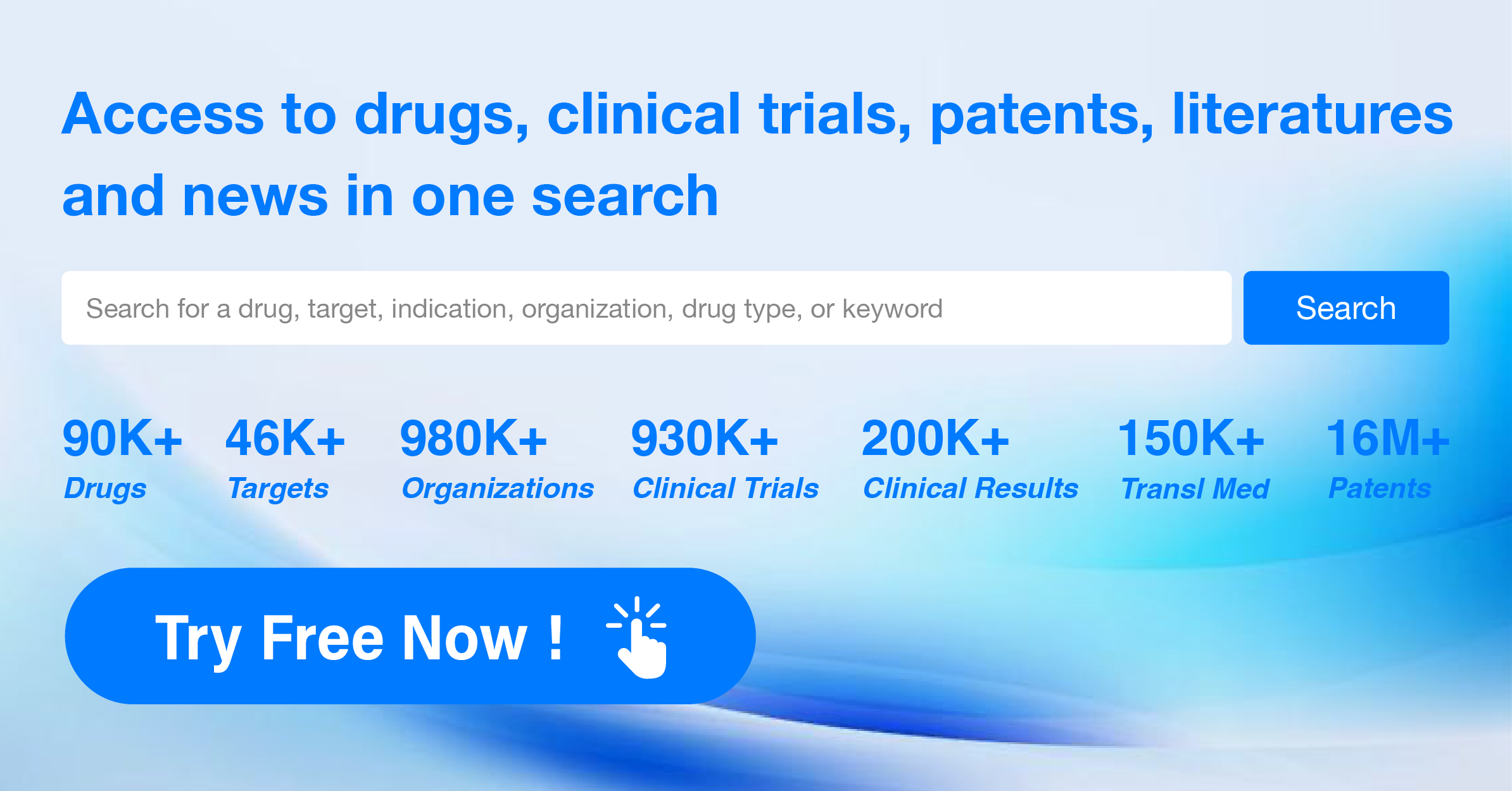Pharma Frontiers: Daily Digest of Global Pharmaceutical News - Jun 21
1.AstraZeneca’s First-in-Class AKT Inhibitor Capivasertib Approved for Marketing in the EU
On June 20th, AstraZeneca’s AKT inhibitor, capivasertib, received marketing approval in the European Union. It is to be used in combination with fulvestrant for the treatment of estrogen receptor-positive (ER+), human epidermal growth factor receptor 2-negative (HER2-) locally advanced or metastatic breast cancer in adult patients who have one or more PIK3CA, AKT1, or PTEN gene mutations and whose disease has recurred or progressed following endocrine-based therapy. The European Commission approved this drug based on the results of the Phase III CAPItello-291 trial published in The New England Journal of Medicine. In this trial, the combination of capivasertib and fulvestrant demonstrated a 50% reduction in the risk of disease progression or death (HR=0.50, 95% CI, 0.38-0.65; p<0.001; median progression-free survival (PFS) of 7.3 months vs 3.1 months) compared to fulvestrant combined with a placebo in patients with tumors harboring PI3K, AKT, or PTEN mutations.
In Europe, breast cancer remains the leading cause of cancer-related death, with over 140,000 deaths in 2022 and more than 550,000 new cases diagnosed that same year. Hormone receptor (HR)-positive breast cancer (expressing estrogen or progesterone receptors, or both) is the most common subtype of breast cancer, with HR positivity and HER2 negativity observed in 70% of tumors. Over 97% of HR-positive breast cancers also express ER. Overall, mutations in PIK3CA, AKT1, and PTEN frequently occur, impacting about 50% of patients with advanced HR-positive breast cancer. In the CAPItello-291 trial, the safety profile of capivasertib combined with fulvestrant was consistent with the safety observed in previous studies evaluating this combination.
2.Daewoong Pharmaceutical Announces Positive Phase 3 Results for Small Molecule Therapy Enavogliflozin
On June 20, Daewoong Pharmaceutical announced the aggregated analysis results of their Phase 3 clinical trial for the SGLT-2 inhibitor enavogliflozin. The analysis demonstrated that enavogliflozin effectively lowers HbA1c levels in patients with mild renal impairment who had difficulties controlling their blood glucose levels prior to enrollment, compared to the active control drug. Detailed data will be published at this year's American Diabetes Association (ADA) meeting. The study indicates that enavogliflozin has superior glycemic control compared to dapagliflozin, significantly reducing HbA1c levels. Over a 24-week period, enavogliflozin reduced HbA1c by 0.94 percentage points, whereas the active control drug reduced it by 0.77 percentage points. Other benefits of enavogliflozin include lowering fasting blood glucose levels, increasing urinary glucose excretion, and improving insulin resistance. Enavogliflozin, a small molecule SGLT-2 inhibitor, significantly lowers patients' HbA1c levels even at a low dose of 0.3 mg, with an achievement rate of target blood glucose levels (HbA1c < 7%) of approximately 70%. It also improves cardiovascular risk factors in patients. The drug was approved in South Korea in 2022.
3.Woolsey Announces Positive Results from Phase 2a Clinical Trial of Oral Small Molecule Therapy Bravyl
On June 20, Woolsey Pharmaceuticals announced that its investigational drug Bravyl demonstrated good tolerability and significantly reduced levels of the key biomarker neurofilament light chain (NfL) in the Phase 2a clinical trial REAL, which focuses on the treatment of amyotrophic lateral sclerosis (ALS). The REAL trial is an open-label, single-arm study aimed at evaluating the preliminary safety, tolerability, clinical outcomes, and neurodegenerative disease biomarkers of Bravyl in patients with ALS.
At the primary safety endpoint, Bravyl exhibited good safety and tolerability, with no participants discontinuing the study due to drug-related adverse events. Additionally, no unexpected or concerning safety issues were observed during the extension period, with some patients receiving treatment for up to 18 months.
Importantly, Bravyl significantly reduced the levels of the biomarker NfL after 24 weeks of treatment. NfL is a sensitive and specific marker of axonal cytoskeleton damage in nerve cells. Elevated blood levels of NfL have been proven to be a reliable indicator of the rate of ALS disease progression. Previous studies have shown that reductions in NfL levels often precede observable clinical benefits, such as prolonged event-free survival, improved scores on the ALS Functional Rating Scale-Revised (ALSFRS-R), slow vital capacity (SVC—a measure of respiratory ability), and muscle strength tests.
The trial data indicated a significant 15% decrease in NfL from baseline to 6 months (p<0.001). Considering that the average NfL level in the ALS population increases by 11% over a six-month period, this suggests that 180 mg/day of Bravyl could potentially reduce NfL by up to 26% relative to the placebo group over the same period.
4.Insilico Medicine's INS018_055 Completes Patient Enrollment for Phase IIa Clinical Trial in China
On June 20, Insilico Medicine announced that it has completed the patient enrollment for its Phase IIa clinical trial (NCT05938920) in China for the novel small molecule inhibitor, INS018_055. This study aims to evaluate the safety, tolerability, and preliminary efficacy of INS018_055 in patients with idiopathic pulmonary fibrosis (IPF). The randomized, double-blind, placebo-controlled trial is being conducted across 29 research centers in China and has successfully enrolled a total of 71 patients as planned. The trial includes three experimental groups and one placebo group, primarily assessing the safety and tolerability of 12-week oral administration of INS018_055 compared to placebo in adult IPF patients. Additionally, Insilico Medicine is preparing for a Phase IIb proof-of-concept study slated for 2025 to further investigate the efficacy and safety of INS018_055.
Idiopathic pulmonary fibrosis (IPF) is a chronic, scarring lung disease characterized by progressive and irreversible decline in lung function, affecting approximately 5 million people globally. Due to its insidious onset and progression, most patients are diagnosed at moderate to advanced stages of the disease, with a median survival time of only three years post-diagnosis.
5.Aurion Biotech Achieves Dual FDA Designations for its Off-the-Shelf Cell Therapy AURN001, Making Notable Progress
On June 20th, Aurion Biotech announced that the U.S. FDA has granted its off-the-shelf cell therapy, AURN001, both Breakthrough Therapy Designation (BTD) and Regenerative Medicine Advanced Therapy (RMAT) designation. According to the press release, AURN001 is the first allogeneic cell therapy to receive both BTD and RMAT designations for the treatment of corneal edema secondary to corneal endothelial disease. Corneal edema secondary to endothelial dysfunction is a debilitating vision-threatening condition affecting millions worldwide. Corneal endothelial cells (CECs) do not regenerate after death or deterioration. If not treated promptly, loss of CECs can lead to corneal edema and vision impairment. Although corneal transplantation is an effective treatment, it is limited by the finite supply of donor organs. Traditionally, one healthy donor cornea can only be used to treat one diseased eye during transplantation. It is estimated that there is only one donor cornea available for every 70 diseased eyes. Additionally, these surgeries carry the risk of postoperative complications and difficult recoveries, such as graft detachment, transplant rejection, dislocation, irregular astigmatism, and infection. Patients undergoing corneal transplantation need to remain supine for up to three days post-surgery to facilitate adhesion of the transplanted cornea to the corneal stroma. Due to these limitations, there remains a significant unmet need among this patient population.
AURN001 is a one-time anterior chamber injection cell therapy comprising allogeneic human corneal endothelial cells, known as neltependocel, and the Rho-associated protein kinase (ROCK) inhibitor Y-27632. The dual FDA designations were primarily based on the unmet medical needs of patients with corneal endothelial diseases and the FDA's review of clinical data related to AURN001, which included multiple clinical trials with participants having completed at least 12 months of follow-up.
6.Neurona's Cell Therapy Recognized as Advanced Regenerative Medicine by FDA
Recently, Neurona Therapeutics announced that the U.S. FDA has granted its lead candidate cell therapy, NRTX-1001, the designation of Regenerative Medicine Advanced Therapy (RMAT) for the treatment of drug-resistant mesial temporal lobe epilepsy (MTLE). NRTX-1001 is a regenerative cell candidate therapy derived from human pluripotent stem cells. These fully differentiated interneurons secrete the inhibitory neurotransmitter gamma-aminobutyric acid (GABA). Through a single administration, these human interneurons can integrate into the human brain, persist long-term, and provide sustained GABA signaling to repair hyperexcitable neural networks.
NRTX-1001 is currently being evaluated in two open-label, multi-center Phase 1/2 clinical trials for its safety and efficacy in drug-resistant unilateral MTLE and drug-resistant bilateral MTLE. Preliminary trial results reported this April indicated that out of 5 unilateral MTLE patients treated with a low dose of NRTX-1001, 4 experienced a reduction in seizures exceeding 50%. Two patients reported that their seizure levels dropped by more than 95% compared to baseline after 16 and 21 months post-treatment, respectively.
MTLE is a common form of focal epilepsy in adults, primarily affecting the inner structures of the temporal lobe, with seizures often originating in a brain region called the hippocampus. For patients with drug-resistant epilepsy, the standard treatment involves surgical resection or laser ablation of the affected temporal lobe, which can lead to cognitive impairments. Researchers indicated that NRTX-1001 has the potential to transform the treatment paradigm for drug-resistant epilepsy.
7.Huadong Medicine's Oral GLP-1R Agonist HDM1002 Tablets Show Positive Results in Phase 1 Trials
On June 20th, Huadong Medicine announced that its orally active small molecule GLP-1 receptor agonist, HDM1002 tablets, achieved positive results in Phase Ia and Ib clinical trials conducted in China. HDM1002 is an innovative small molecule drug independently developed by Zhongmeihuadong Pharmaceutical, with global intellectual property rights, featuring oral bioavailability, potency, and high selectivity as a GLP-1 receptor agonist. Preclinical studies indicated that HDM1002 could effectively activate GLP-1 receptors, induce cyclic adenosine monophosphate (cAMP) production, and significantly improve glucose tolerance, reduce blood sugar levels, and promote weight loss, demonstrating a favorable safety profile.
The recently announced Phase Ia study included 79 healthy subjects and aimed to assess the safety, tolerability, and pharmacokinetics of single oral doses of HDM1002 with escalating doses. The results showed a significant reduction in postprandial blood glucose at two hours compared to placebo, displaying a dose-dependent relationship. Additionally, HDM1002 exhibited linear pharmacokinetics across doses from 10 mg to 600 mg, with good safety and tolerability, and all adverse events were mild (Grade 1) or moderate (Grade 2).
The Phase Ib study aimed to evaluate the efficacy and safety of HDM1002 in overweight and obese adult subjects, enrolling 60 participants. Results indicated that by day 28, subjects receiving doses of 100 mg or higher of HDM1002 exhibited significant weight loss compared to the placebo group, with a dose-dependent effect. Within the target dose range, subjects experienced an average baseline weight reduction of 4.9% to 6.8%. The most common adverse events observed were gastrointestinal-related, predominantly mild nausea and vomiting.
8.Keymed Biomedical's CD38 Antibody Clinical Data Published in NEJM
On June 20th, Keymed Biomedical announced the publication of their CD38 antibody CM313 study results for the treatment of immune thrombocytopenia (ITP) in The New England Journal of Medicine (NEJM). According to the Keymed press release, the paper provides a prospective evaluation of the safety and efficacy of CM313 in treating ITP and elucidates the potential mechanisms of CD38 antibody therapy for this condition.
Immune thrombocytopenia is a common autoimmune bleeding disorder characterized by accelerated antibody-mediated platelet destruction and impaired platelet production. Current treatment options still fail to meet the clinical needs of all patients, some of whom face serious risks such as severe bleeding, reduced quality of life, and increased mortality. CD38-positive long-lived plasma cells (LLPCs) are capable of continuously producing pathogenic antibodies, which can lead to relapse or refractory disease. This is considered a key reason why merely targeting CD20-positive B cells is insufficient to provide lasting clinical benefits for ITP patients. By targeting the CD38 molecule to eliminate antibody-secreting cells, including long-lived plasma cells, new therapeutic benefits for immune thrombocytopenia may be realized.
CM313, an anti-CD38 humanized monoclonal antibody developed by Keymed, was the focus of a researcher-initiated, single-arm, open-label Phase 1/2 clinical study published in NEJM. The study involved a total of 22 patients with immune thrombocytopenia, aiming to assess the safety and efficacy of CM313 in treating the condition. Patients received weekly doses of CM313 (16 mg/kg) for eight weeks, followed by a 16-week observation period. Safety was evaluated based on the incidence and severity of adverse events, while efficacy was primarily measured by the percentage of patients who achieved a platelet count of ≥50×10⁹/L on two consecutive occasions within the eight-week period.The study results demonstrated that CM313 treatment rapidly and sustainably increased platelet counts in ITP patients, thereby reducing the risk of bleeding.
9.New Tumor Immunotherapy Target! Zenshine Pharmaceuticals' First-in-Class Drug Approved for Clinical Trials
On June 19, the website of the Center for Drug Evaluation (CDE) of the China National Medical Products Administration (NMPA) announced that Zenshine Pharmaceuticals has received implied approval for clinical trials of its first-in-class drug ZX-8177, aimed at treating advanced solid tumors. According to publicly available information from Zenshine Pharmaceuticals, ZX-8177 is a small molecule ENPP1 inhibitor. The preclinical research results of this product have been selected for presentation at the American Association for Cancer Research (AACR) annual meetings for two consecutive years. Research indicates that 2'3'-cGAMP, acting as a second messenger that binds to STING (Stimulator of Interferon Genes), can induce a STING-dependent interferon response, triggering downstream antiviral and antitumor mechanisms. ENPP1, short for Ectonucleotide Pyrophosphatase/Phosphodiesterase 1, can hydrolyze extracellular 2'3'-cGAMP, thereby attenuating the immunostimulatory tumor microenvironment and promoting tumor progression. ZX-8177 is an ENPP1 inhibitor under development by Zenshine Pharmaceuticals.
According to preclinical research results presented at the 2022 and 2023 AACR annual meetings, ZX-8177 effectively promotes the production of IFN-β1 through the cGAMP-STING pathway. In the CT-26 isogenic mouse model, ZX-8177, administered at a dose of 2mg/kg BID for 14 days, achieved approximately 37% to 60% tumor growth inhibition (TGI) and significantly increased the proportions of NK cells, T cells, and M1/M2 macrophages in the tumor microenvironment. Additionally, the product exhibits favorable DMPK (Drug Metabolism and Pharmacokinetics) and safety pharmacology characteristics, supporting its potential as a clinical candidate for further development.
Furthermore, synergistic antitumor effects of ZX-8177 in combination with anti-PD-L1 antibodies were observed in the MC38 mouse model. The TGI of anti-PD-L1 antibody treatment alone and in combination with ZX-8177 were 53% and 75%, respectively. The synergistic antitumor effects of ZX-8177 in combination with chemotherapy or radiotherapy were also noted. In the Pan02 isogenic mouse model, ZX-8177 (25mg/kg, oral, BID) combined with 20Gy radiation therapy demonstrated enhanced antitumor effects compared to radiation therapy alone (TGI of 100% vs. 78.5%).
How to obtain the latest research advancements in the field of biopharmaceuticals?
In the Synapse database, you can keep abreast of the latest research and development advances in drugs, targets, indications, organizations, etc., anywhere and anytime, on a daily or weekly basis. Click on the image below to embark on a brand new journey of drug discovery!




